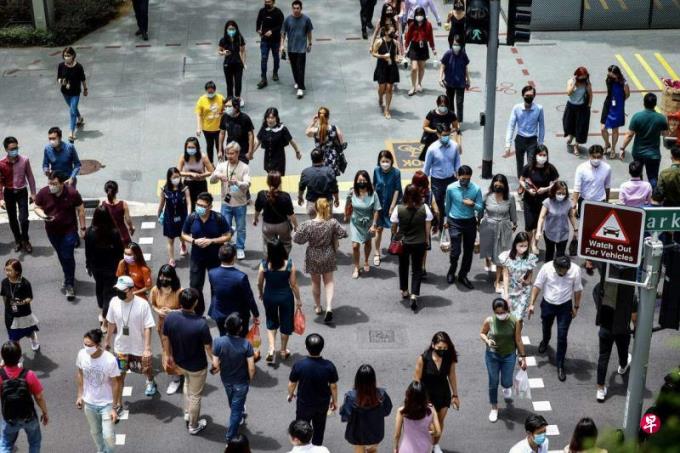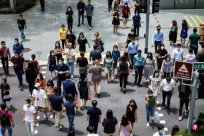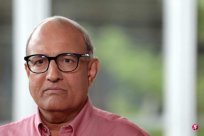
Money can solve the problem, which can be treated by focusing on solving money. "Not equal enough" is often not just a matter of money. It is difficult to deal with other, including knowledge gap and labor market structure structure.And other issues.
In the first few days of entering 2024, the relatives and friends around me were happy to talk about the 500 yuan neighborhood shopping vouchers I just got. This year, the Lunar New Year is late.EssenceThis can be said to be the government's opening annual red envelope for each Singaporean.
Almost at the same time, some people who have just received the real estate tax bill are completely different.The government announced in 2022 to increase real estate taxes in two years, and the annual annual value of houses was generally increased at the end of 2023.The real estate tax is calculated at an annual value. The government's doubles are matched. Those landlords living in large houses, especially those who have non -living private houses, are particularly cold in January this year.Compared with the increase in real estate tax, another percentage consumption tax is insignificant.
Welcome to 2024, this is the basic appearance of many people expecting "more equal society".
A friend complained to me nearly 20%of the real estate tax. I laughed and said, "Group B rose from 100,000 to 150,000 from two years ago to 150%, more than 50%.Thank you for your contribution to building a more fair society. "
Taxation has increased step by step, this is the trend of Singapore in the past ten years.From 2015, the Deputy Prime Minister and Minister of Finance, Shang Daman, announced in the budget that since 2017, it has levied higher income tax to 5%of the people with the highest income.The direction of Singapore's policy allows some of the wealth to cycle into the economic system and then use it to alleviate the poor and the poor.
Those who benefit from economic development have the ability to bear more, so that people with less income and less resources get more. This concept Singaporeans are already familiar.However, when money must be taken out of your own pocket, even if the ability is more than enough, the feeling is still not so comfortable, which is also human.
The collective values of Singaporeans are to establish a more fair society, which can take care of the reasonable benefits of each citizen. There must be high -quality public medical services, sufficient retirement preparation, high -quality education, better public services, better public servicesIt is inevitable that the progressive tax of wealth is unavoidable.
On the other hand, there are also some people who agree with those who have the ability to bear more people to start worrying. How to ensure that those welfare really converts to opportunities and promote social fairness, rather than letting some people feel unrealisticly anesthesia?
Money can solve the problem, which can be dealt with by focusing on solving money, and "not equal" is often not just the problem of money. It is difficult to deal with other problems including knowledge gap and labor market structure.
Economist magazine launched a report on the richest country in 2023 on the 15th of last month. The data of 2022 compared the three GDPs of the world in the world.Pay attention.These three GDPs are: GDP Per Capita per capita, GDP Adjusted for Cost Differenters with cost adjustments, and GDP Adjusted for Costs and Hours Worked, which are adjusted by cost and working hours.
The lines drawn with these three data, Singapore's most surprising.Singapore's per capita GDP ranks sixth with 82800 US dollars (approximately S $ 11,1018); GDP (generally purchased at a procurement power, PURCHASING POWER PARITY (PPP), Singapore, at $ 128,000 (about 170,000 USD) (about 170,000 USD) (about 170,000 US dollars)1622 yuan) ranked second in the world; if the scripture cost and the adjusted GDP, we fell to 15th for 62,500 yuan (about S $ 83,800) to 15th.
It is a little comfortable that all Asian countries are far behind us after the cost and working hours are adjusted.These three indexes are in the top ten in the top ten in Europe and the Middle East countries with oil -producing oil.
This means that Singapore has a high per capita income and strong purchasing power, but we need to work longer to get the current income.This may be because income is very different and high -income people have increased their average. Fortunately, monetary policy and other social policies have strengthened people's purchasing power.What is worrying is the third item. This aspect may be because Asian habits have been working for a long time, but what is disturbed is that many people's work is low -end, and productivity and production value cannot support high -time salary.
Such jobs are usually not complicated with some knowledge requirements and exchanged for output with time.In the era of artificial intelligence, this kind of repetitive, especially white -collar worker work is the easiest to be replaced.If our labor structure does not make great changes, in the future, we must maintain high purchasing power in the future, and we need more welfare transfer.
Do people really understand the appearance of a more equal society?
We can comfort our DNAs of Singaporeans. Young people are pursuing tolerance and are willing to create a tender society that provide welfare for the disadvantaged.But I dare not be so optimistic.When the price is paid by others, anyone can be very generous, but when they have to do more for a while, the nature of exquisite self -ism may be revealed, and the differences in society will be more difficult than now.




